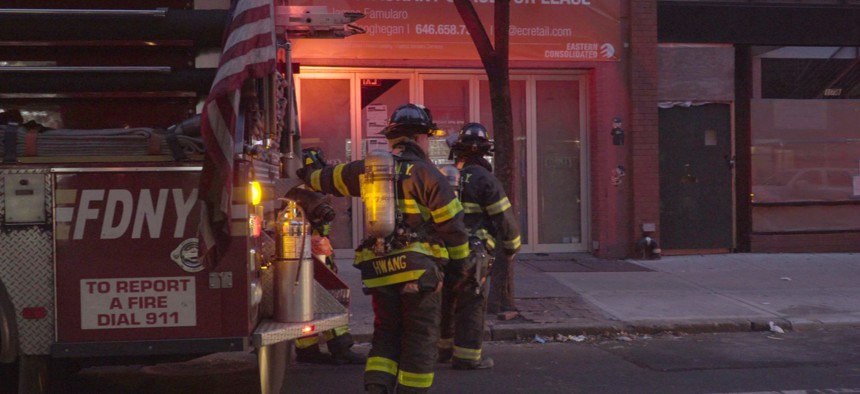Protecting the Privacy of First Responders

The legislation would apple to ambulance drivers, paramedics and firefighters, among others. Shutterstock

Connecting state and local government leaders
A proposal in New York would prohibit disclosure of the home addresses of paramedics and firefighters to defense attorneys during court proceedings.
First responders in New York would have their personal information protected from disclosure in court documents under a bill making its way through the state legislature.
The legislation, introduced in January, seeks to modify recent reforms to the rules that govern the legal discovery process, where prosecutors and defense lawyers trade legal information and evidence related to a trial. The new law requires that defendants have access to discovery materials within 15 days of their arraignment and expands the types of materials that must be turned over to include the names, home addresses and contact information for all witnesses.
Law enforcement officers are exempt from that change, but other first responders, including firefighters and paramedics, aren’t. Because those responders are often the first to arrive at the scene of a crime, they are frequently called as witnesses, legislators said, which means their personal information will be available to criminal defendants. That could potentially subject them to intimidation, harassment or threats, putting them at risk and hampering public safety recruitment efforts, said state Sen. James Tedisco, one of the bill’s co-sponsors.
“Many volunteer firefighter and emergency first responder companies are already facing recruitment challenges,” Tedisco, a Republican from Glenville, said in a statement. “This law and the possibility that the first responders and their loved ones could become targets will just make it harder to recruit volunteers.”
As written, the legislation would extend privacy protections to “ambulance services or advanced life support first response services, certified first responders, firefighters, emergency medical technicians or advanced emergency medical technicians, who are employed by or enrolled members of any such service.”
“Emergency personnel should have the same privacy protection as law enforcement officials, so they are not subject to retaliation or witness tampering,” Tedisco wrote in a memo attached to the legislation. “This measure provides such protection.”
Several local boards have passed resolutions supporting the measure, including the Glenville Town Board, the Fulton County Board of Supervisors and the Ilion Village Board.
Tedisco’s bill is one of several proposals seeking to make changes to the state’s bail and discovery reform law, including other legislation that seeks to repeal the measure entirely. The legislation is currently awaiting a hearing before the Senate Codes Committee.
Kate Elizabeth Queram is a Staff Correspondent for Route Fifty and is based in Washington, D.C.

NEXT STORY: Trump Promises Close Working Partnership with County Governments




